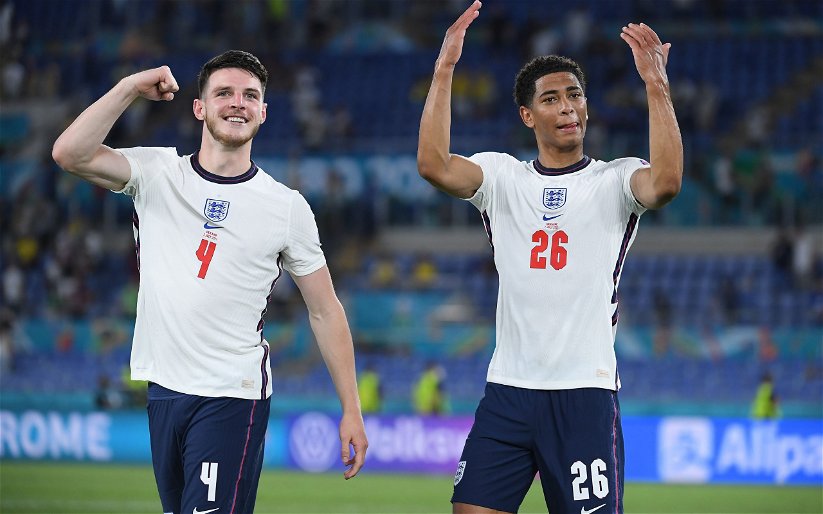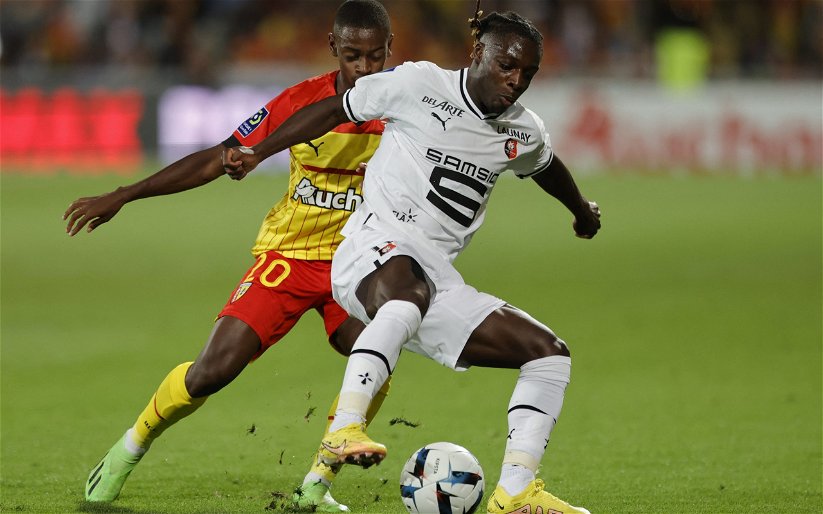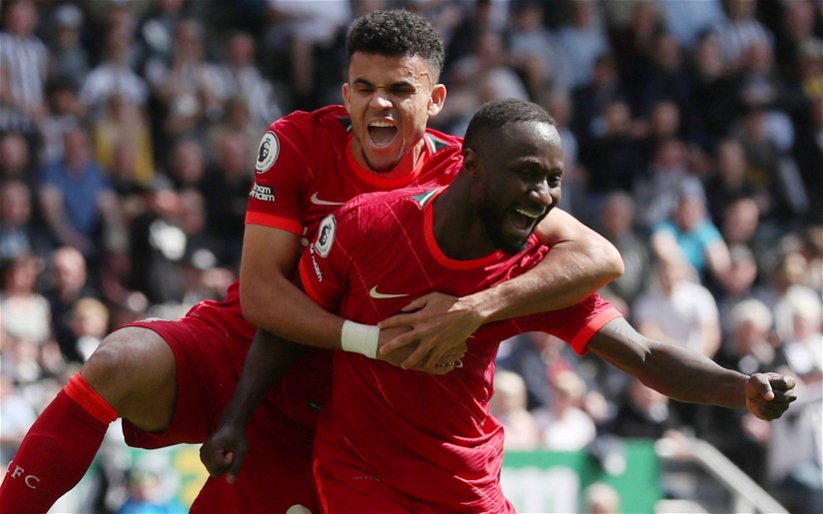 KENNY Dalglish is gone. Every supporter of Liverpool knows that.
KENNY Dalglish is gone. Every supporter of Liverpool knows that.
On Wednesday, Fenway Sports Group confirmed what was being whispered through the media on Tuesday; Kenny Dalglish is no longer the manager of the Reds.
Something interesting happened after the announcement and the club now finds itself at a truly critical moment in its history.
Throughout the past several months, chat boards and social media postings were calling for the dismissal of the Liverpool icon because of League form. The vocal side of the disgruntled sector was tangible and was at work by clearly articulating the case for King Kenny’s firing. Today, once the decision was actually made, a different sentiment was shared. Supporters from all over the globe shared in the frustration of the public dismissal of such an iconic figure in the clubs history. The man who led Liverpool to six major titles was gone, and not by his own choosing. It is most certainly hard to swallow as it was clear that the manager was not given enough time.
Those who love this club know that the current status of football is not representative of the history that Liverpool embodies. While it is difficult to swallow and contradictory to what we as individuals would have done in the situation that FSG is in, let us take a moment to reflect. Reflect on the selfless service of Kenny Dalglish and continue to celebrate what his service means to our beloved club. In addition, recognize that the owners have aspirations of winning.
There is no secret that league form has been abysmal by all accounts. Sure, Liverpool lifted the first trophy in six years but the club finished below Everton in the league. What FSG’s decision screams is that the owners want to return the club to winning ways. The decision may push supporters to the point of discomfort with our hero King Kenny, but the owners want progress and that should be appreciated.
[ad_pod id=”unruly-video” align=”center”]
The truly critical circumstance regarding the decision to sack King Kenny is yet to be seen. Will Liverpool be able to attract a top talent manager who is capable of working from the squad that Kenny Dalglish had begun to assemble? Will the supporters and owners give the new manager time to develop a philosophy and personality necessary to lead to success? Names have been discussed throughout the media today as the news made way through the twitter accounts of bloggers and football writers. Everyone from Roberto Martinez to AVB to Jurgen Klinnsman to the return of Rafa has been rumored to be in discussions with Liverpool.
One thing is certain, the owners hiring decision will be scrutinized on performance. Supporters will demand from the owner’s decision process, what the owners demanded from Kenny Dalglish: success. Whoever is selected, that manager’s profile needs to lend itself to being able to recruit world class talent to a club that has now been thrown back into transition. Mr. Henry and Mr. Werner need to remember, success is not bread overnight and supporter’s trust of American owners is thin.
Catch me on twitter @statesidescouse
Live4Liverpool is recruiting columnists. For further info contact the site editor at live4liverpool@snack-media.com
Follow us on Twitter here: @live4Liverpool and ‘Like’ us on Facebook




We should really be grateful and thank Principal Owner John W. Henry, Chairman Thomas Werner and FSG for their steady commitment to turn around the fortunes of this historic club and make all LFC’s fans worldwide proud again. Parting company with Kenny Dalglish was not an easy decision to make but it was the right one for many reasons that we analyzed previously a lot of times. LFC needs a top-world class manager and they should very carefully select the ideal replacement. I totally agree with John Barne’s assessment that Andre-Villas Boas is a good manager and his footballing philosophy and his style of play will fit LFC. But let us analyze his football philosophy. He is one of the world’s most exciting young coaches. He insisted that Robson was key to his development, maintaining that: “He was decisive in the love I feel for this profession and for the doors he opened for me at that age. I owe him.”
A FOOTBALL PHILOSOPHY
AVB: There are more spaces in football than people think. Even if you play against a low block team, you immediately get half of the pitch.
And after that, in attacking midfield, you can provoke the opponent with the ball, provoke him to move forward or sideways and open up a space. But many players can’t understand the game.
They can’t think about or read the game. Things have become too easy for football players: high salaries, a good life, with a maximum of five hours work a day and so they can’t concentrate, can’t think about the game.
Barcelona’s players are completely the opposite. Their players are permanently thinking about the game, about their movement, about how to provoke their opponent with the position of the ball.
DS: Does a top team need to dominate possession to win a match?
AVB: Not necessarily, for a simple reason. In Portugal we have this idea of match control based on ball circulation.
That’s what we in Portugal want to achieve in our football: top teams that dominate by ball possession, that push the opponent back to their area.
If you go find the top English teams pre-Arsene Wenger they tell you how to control a match in the opposite way without much ball possession, direct football, searching for the second ball.
Maybe now, controlling possession is the reference point for a top team, but that happens because they have much more quality players than the other teams, so it would be wrong not to take advantage of those individual skills.
DS: One thing Louis Van Gaal says is that you can control a match offensively and defensively but you must keep in control defensively you can also determine where your opponent will play on the pitch.
AVB: Yes, I agree. In that sense, yes. But the idea we now have in Portugal of match control is about having more ball possession than the opponent.
DS: Exactly, but match control has to result in scoring chances. That’s the only way it makes sense. There are teams that have like 60 per cent ball possession and that results in nothing at all.
AVB: That’s it. Match control always has to have a purpose, a main goal.
DS: And in that concept of match control, are there any sectors of the team more important than others?
AVB: Well, that depends on the mechanisms you want to use defensively and offensively. Let me give you an example.
Top teams nowadays don’t look to vertical penetration from their midfielders because the coach prefers them to stand in position (horizontally) and then use the movement of the wingers as the main source to create chances.
So, you, as a coach, have to know exactly what kind of players you have and analyse the squad to decide how you want to organise your team offensively. And then, there are maybe some players more important than others.
For instance, many teams play with defensive pivots, small defensive midfielders.
And, except Andrea Pirlo and Xabi Alonso, and maybe Esteban Cambiasso and one or two more, they are players that are limited to the horizontal part of the game: they keep passing the ball from one side to another, left or right, without any kind of vertical penetration.
Can’t you use your defensive midfielder to introduce a surprise factor in the match? Let’s say, first he passes horizontally and then, suddenly, vertical penetration?
THE INFLUENCE OF JOSE MOURINHO
AVB: There has been an evolution in football language and football analysis since Mourinho started to coach. There’s a different way of looking at a match, a different way of doing technical analysis.
People have started to look beyond the formation, and started talking about the dynamics within the team and how they’re more important than the team’s formation.
TALKING TACTICS
DS: What’s the difference between playing with three or four midfielders?
AVB: Rafa Benitez created a 4-4-2 much more dynamic than the usual English 4-4-2. Because he introduced speed in ball possession, he gave it variation between vertical and horizontal passes.
The usual classic English 4-4-2 is more basic: a penetrating midfielder and another one that stays in position; a winger who moves inside and another one who stays wide; a full back who overlaps and another one who covers the defence.
If you talk about a 4-4-2 diamond, that’s totally different. You play with two pivotal midfielders, one defensive and one offensive, so it creates many more problems for your opponent.
Defensively, though, you take a great risk of ceding too much space because you are very central and you lack width. You have to create compensation mechanisms.
Me, I’m a 4-3-3 fan, not 4-4-2. I don’t see how a classic 4-4-2 could work in the Spanish league, where every team plays 4-3-3 and the superiority of the midfield has become crucial.
What Mourinho did with Chelsea with his 4-3-3 was something never seen before: a dynamic structure, aggressive, with aggressive transitions…and then there is Barca’s 4-3-3, which wouldn’t work in England, because of the higher risk of losing the ball.
If you have midfielders like Frank Lampard or Steven Gerrard you don’t want your forwards to come and play between lines, because Lampard and Gerrard have a large field of action and very often move in to those spaces.
Lampard was often irritated with Didier Drogba because Drogba wanted to receive the ball there but then, amazingly, his first touch was poor, so he lost the ball and we were exposed to a transition from the opponent.
So we had to limit Drogba from going there and ask him to play deeper.
BARCELONA’S TACTICAL MASTERPLAN
DS: Is good ball circulation essential in the attacking organisation of a top team?
AVB: Well, it’s essential to every team. Every team want to score. That’s the purpose of the game. Barcelona play horizontally only after a vertical pass. See how the centre backs go out with ball, how they construct the play. They open up (moving wider), so that the right or left-back can join the midfield line.
Guardiola has talked about it: the centre backs provoke the opponent, invite them forward then, if the opponent applies quick pressure the ball goes to the other central defender, and this one makes a vertical pass.
Not to the midfielders, who have their back turned to the ball, but to those moving between lines, Andres Iniesta or Lionel Messi, or even directly to the striker.
Then they play the second ball with short lay-offs, either to the wingers who have cut inside or the midfielders, who now have the game in front of them.
They have an enormous capacity not to lose the ball, to do things with an unbelievable precision.
Another thing about Barcelona, there is always a full-back who arrives earlier in the attack, the other stays in position initially but then progressively joins the attack, as the ball circulates on the other side of the pitch, so he can be a surprise element. When you least expect he arrives. He chooses the perfect timing for the overlap.
DS: Louis Van Gaal says a vertical pass is not a risk, but a horizontal pass is because when you make a horizontal pass you are much more open, more exposed in case you lose the ball.
AVB: Yes, that’s right. And there are differences between a horizontal pass and a slightly diagonal pass.
Something that used to happen a lot in England, when teams played 4-4-2, was that the central midfielders exchanged the ball between them in parallel passes so what we did with Lampard, or Liverpool did with Gerrard, was to try to cut into that space between the two midfielders with fast movement from Lampard.
If they got the ball there, there were already two opponents eliminated in the attacking transition.
DEALING WITH DEFENSIVE TEAMS
DS: How do you attack a team that plays with an ultra-low block?
AVB: Let’s see. Juventus play with an ultra-low block, they don’t put any pressure on you high up the field. Nowadays most teams don’t. It can limit you because they control the space behind them with perfect offside timing.
They limit your vertical passes as well because they are all grouped within 30 or 40 metres, completely closed in two lines of four plus the two forwards.
So you start constructing “short”, begin the attacking process with your centre-backs of full-backs carrying the ball forward to the midfield area but then you want to pass the ball to the midfielders and you don’t know how to do it, because there is an ultra-limited space, everything is completely closed.
DS: So what to do?
AVB: You have to provoke them with the ball, which is something most teams can’t do. I cannot understand it. It’s an essential factor in the game.
At this time of ultra-low defensive block teams, you will have to learn how to provoke them with the ball. It’s the ball they want, so you have to defy them using the ball as a carrot.
Louis Van Gaal’s idea is one of continuous circulation, one side to the other, until the moment that, when you change direction, an space opens up inside and you go through it.
So, he provokes the opponent with horizontal circulation of the ball, until the moment that the opponent will start to pressure out of despair. What I believe in is to challenge the rival by driving the ball into him.
That’s something Pep Guardiola believes is decisive. And that’s something that Henk ten Cate also took to Avram Grant’s Chelsea. He took it with him form Frank Rijkaard’s Barcelona. We did it differently at Chelsea under Mourinho.
Our attacking construction was different, with the ball going directly to the full-backs or midfielders. With Ten Cate, play was started with John Terry or Ricardo Carvalho, to invite the opponent’s pressure. Then you had one less opponent in the next step of construction.
That above is to long. – RAFA BENITEZ.
1 He is local and knows the city and the hearts of the fans.
2, He has done it in europe.
3, He has won things.
4, knows now how the press works.
5, knows the club, the training facilities, the area and all.
6, knows most of the players.
7, Has has a break so is very fresh and ready to prove himself.
8, He will not cost anything, in terms of a paying him out of compenstaion, because he is out of work.
9, He is a huge tacktical manager, we need that.
10, He is still young, hardly old is he.
11, He has worked at big club, unlike martinez the gimp.
ITS RAFA,- if
martinez,, rodgers, lambert get the job then im not not following liverpool anymore.
Another load of rubbish today from Ayre, “we will take our time” “we have nobody in mind yet” blah blah, a couple of hours later they are asking to talk to Marinez. This time with permission !!.
The sacking of KD would only bring tears in me, tears of joy.
Congratulations to Mr. Henry for having the courage to be decisive and act without hesitation. A lot of the KD fans (that pretended to be LFC fans along the way) seems to be a confused lot, acknowledging our dismal league form can’t be excused but wants to keep that man who brought us to this state of affairs in the 1st place. If we have one ounce of logic, how can a man proven to be such a poor manager (that logically can only produces such poor result) can suddenly turn into a Shanky like personnel in 3 months time? The only regret in this sacking is it did not come sooner.
We had lost too much ground to our rivals and keeping KD would only ensure we stayed that way. Its time to move on and this time get the right man.
Thanks for the auspicious writeup. It actually used to be a entertainment account it. Look complex to more brought agreeable from you! By the way, how could we keep in touch?